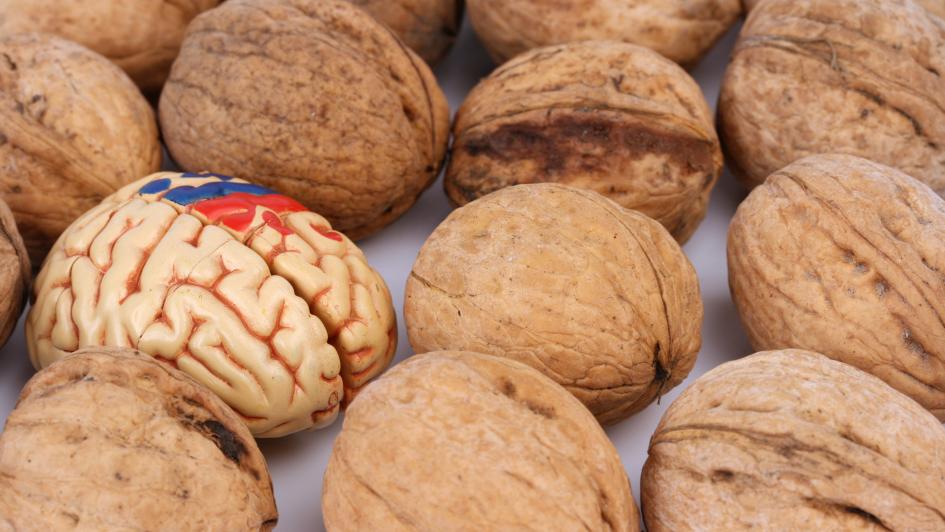Five Fats for Thought

Published
Did you know that nearly one in five Americans suffer from some sort of mental health illness (MHI)?1 .In fact, mental illness is the leading cause of disability and a cofactor to multiple chronic diseases worldwide.2 Therefore, it is no surprise that MHI is a hefty economic, social and health burden.
What is MHI?
MHI is defined as any mild to severe mental, behavioral or emotional disorder.1 Typically, such disorders are treated with antidepressants; however, the failure rate for such treatment is high, and only 30 percent of patients tend to be responsive.2 Fortunately, the recently discovered gut-brain axis (i.e., the interlinked nature of the gut and brain) now makes it evident that diet and nutrition can play a major role in mental health and well-being.
What Affects Mental Health?
Nutritional psychiatry is a newer field that shows promising results in the use of diet quality as a modifiable risk factor in preventing and treating MHI. Chronic inflammation, oxidative stress, brain plasticity, gut microbiota and mitochondrial dysfunction are all examples of overlapping pathways that affect mental health.2 As you can see, several biological processes in the body are influenced by the brain but can be modified by changes in the diet!
Omega 3's & The Mediterranean Diet
Did you know the brain is a lipid-rich organ? It’s actually the fattiest organ in the body, and 33 percent of it is composed of polyunsaturated fatty acids (PUFA), including omega-3 fatty acids, which are essential for the body and brain.3 Studies suggest that dietary patterns like the Mediterranean Diet, which comprises PUFAs, support brain function.2 Omega-3 fatty acids act as signaling molecules that are essential for neurotransmission, neuroprotection and synaptic plasticity (aka healthy brain aging) … they even stimulate neurogenesis2
Omega 6's & Saturated Fats
On the other hand, diets high in trans and saturated fats or rich in omega-6 PUFAs promote pro-inflammatory markers, affecting the area of the brain known as the hippocampus, to which depression and other mood disorders are linked.3 Diets high saturated fat — often composed of processed food, conventional red meats or refined carbohydrates — increase the risk of depression by 60 percent.4 So you may want to think twice before grabbing that box of Twinkies, and reach for a handful of walnuts instead!
Is All Fat "Bad" For You?
We are finally changing the way we think about fats, and you should too! The type of fat you eat can seriously impact your mental health; it all comes down to quality. Aim for the more healthful unsaturated fats, which have a greater omega-3 content, and always opt for unrefined, cold-pressed or virgin oils. Limit intake of saturated fats, especially if they come from processed foods or conventional meats. Be sure to eat your fats with nutrient-dense fruits and vegetables to maximize the absorption of fat-soluble vitamins and antioxidants.
Here are FIVE HEALTHY fat foods to add to your diet that your brain will love:
-
FATTY FISH: Excellent source of omega-3 DHA/EPA and vitamin D
-
AVOCADOS: High in monounsaturated fats and vitamin K
-
WALNUTS: Rich in vitamin E and ALA omega-3
-
OLIVE OIL: Full of antioxidants and MUFA
-
EGG YOLK: Nutrient-packed vitamins A/D/E/K and choline
Want to learn more about food and your brain health? Talk with a naturopathic doctor at Bastyr University Clinic in San Diego, CA or Bastyr Center for Natural Health in Seattle, WA.
Resources:
-
Mental Illness. National Institute of Mental Health. https://www.nimh.nih.gov/health/statistics/mental-illness.shtml. Accessed April 24, 2019.
-
Marx W, Moseley G, Berk M, Jacka F. Nutritional psychiatry: the present state of the evidence. Proceedings of the Nutrition Society. 2017;76(4):427-436. doi:10.1017/s0029665117002026.
-
Melo HM, Santos LE, Ferreira ST. Diet-Derived Fatty Acids, Brain Inflammation, and Mental Health. Front Neurosci. 2019;13:265. Published 2019 Mar 26. doi:10.3389/fnins.2019.00265

